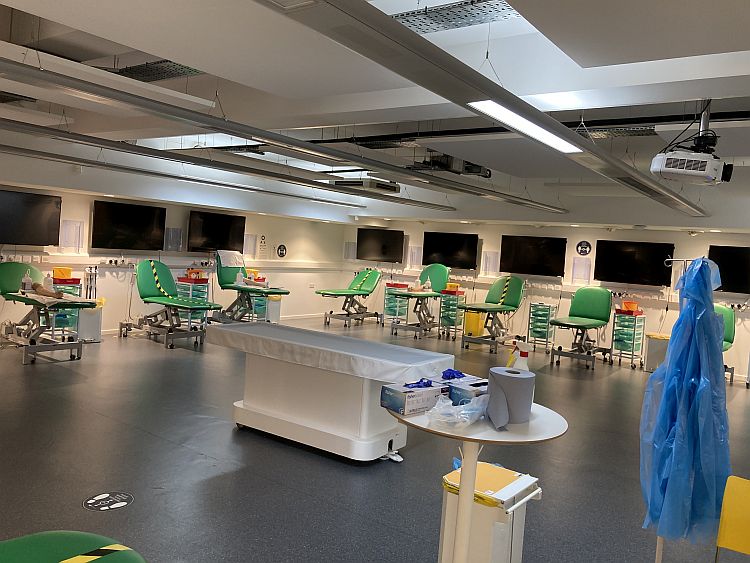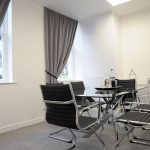
The idea for this post developed over the past ten years of my involvement in the training of Physician Associates, Medics, Pharmacists, Dentists and other health professionals. Ten years of working as an ACE and role-player observing those same students pass and fail their OSCEs every year.
I have also spent ten years mentoring and coaching students from all walks of life, at various levels of their education in order to help them become a success.
I have consequently developed strategies and models to help students become safe and competent health professionals. I have seen how successful many of them have become, time and time again.
Over that time, I have also made a careful study of underachievement. The students who fail. I have therefore reached a shocking conclusion that many of the students who fail, share the same strategies on a daily basis that leads to a state of total and absolute failure.
It takes an awful lot of work to fail this well. Often a lot more work than it takes to succeed.
Successful people always reveal that they never feel that they are working for a living.
They’re invariably optimists.
Failures are invariably pessimists.
They usually hate their work.
I have learned a lot from failures.
Failure is a choice… It takes conscious effort!
As I have said, I have studied success too and I know those strategies well. I guess if you know specific strategies for success and do the exact opposite, you’re well on your way to being a spectacular failure.
So, here are my top tips, my step-by-step approach to help you fail the OSCEs majestically.
Of course you could also do the exact opposite… But that would be crazy!!
So here we go:
STEP ONE
If you want to ensure that you fail the OSCE then you must definitely never ever think about what success could mean for you. Avoid, at all costs, positive role models and avoid successful people.
Never define your goals or find your purpose.
STEP TWO
DO NOT turn up early or even on time for lectures. In fact make sure you miss as many as possible. Forget to set your alarm and enjoy those extra minutes in your lovely warm bed. You deserve it after all. It’s been a tough week!
STEP THREE
If you insist on revising, remember to never revise in a structured way. Never plan you day around your study time.There are more important things to do. Tidying up your room, washing the dishes, the laundry or catching up on the a Netflix series that you missed first time around.
STEP FOUR
As the OSCE dates get closer never try to be optimistic about this approaching nightmare. Do anything but think about those exams.
Reaffirm on an hourly basis, that it’s going to be difficult. Maybe even impossible. OSCEs are difficult and scary.
STEP FIVE
Repeat Step Four the night before the OSCE and stay up late. Never get an early night and always panic. Lots of panicking!
“DO NOT REMAIN CALM.”
STEP SIX
You have somehow made it to the OSCEs and you are at your first station. Whatever you do… DO NOT READ THE QUESTION PROPERLY! Tell yourself that those two minutes are going to fly by, so only give it a quick scan.
STEP SEVEN
Never tidy up your appearance. Do not iron your clothes and always wear something inappropriate. You washed your hands earlier in the day, so do not use the hand gel when you enter the room.
STEP EIGHT
When you enter the room, lack confidence. This shouldn’t be difficult if you have followed the previous seven steps. If you look scared, you may win a sympathy vote. Mumble your name incomprehensibly and as fast as you can to save time.
STEP NINE
Forget to take notes. If you have been stupid enough to have wasted time making some outside the station… NEVER refer to them again. Remember to leave your stethoscope and watch at home. You can borrow them from the examiner, anyway!
STEP TEN
Have no structure when performing a systems exam. You’re a free spirit and want to show your improvisational skills to the examiner. When taking a history, DO NOT make eye contact. DO NOT listen for cues and always use jargon. Keep saying: “OK. OK. OK.”
Finally. Thanks for coming this far with the article. You have succeeded at something! Best that you forget everything I have said and now delete all the above from your memory. That would just take up valuable space.
This is by no means a complete guide for failing the OSCEs. That would take a book and you probably wouldn’t be bothered to read it, anyway. Avoid books, research papers and journals related to medicine. Hello magazine has more pictures in it, is more interesting and wastes a bit of time.






